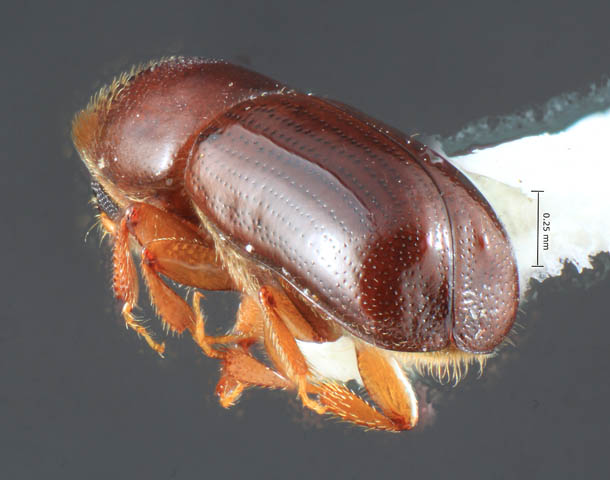Gnathotrupes moraviae Wood 2007


 Images: Displaying 9 to 10 of 10
Images: Displaying 9 to 10 of 10 




 Gnathotrupes moraviae (female)
Gnathotrupes moraviae (female) |
 Gnathotrupes moraviae (female)
Gnathotrupes moraviae (female) |
| < Prev |

Gnathotrupes moraviae (female) (by TH Atkinson, Biodiversity Center, University of Texas at Austin). allotype Gnathotrupes moraviae Wood. This image is the property of the National Museum of Natural History, Smithsonian Institution, Washington, D.C., used under CC0 license
 Summary of Information
Summary of Information





SYNONYMY
- Gnathotrupes moraviae Wood 2007. M.L. Bean Life Sci. Mus.: 662
DISTRIBUTION.
Numbers in parentheses after each geographic unit are the number of distinct collection events in the database for that unit. For exotic species generally only countries are listed for localities outside the New World. For further information on published sources of distribution, check the REFERENCES section.
- Central America (3)
Costa Rica (3): Heredia (2), San José (1);
HOSTS
Numbers in parentheses after each host family, genus, or collection method are the number of distinct collection events in the database for that host or method.
- No host information (3) (3): no species data (3);
REFERENCES
The following are important recent monographs, catalogs, and supplements to catalogs that refer to this species. The specific page on which the reference is made is shown in pink at the end of the reference. In the case of Wood (1982) and Wood & Bright (1992) clicking on the reference page will link to a digital version of the work in question.
- Wood, S.L. 2007. Bark and ambrosia beetles of South America (Coleoptera: Scolytidae). Monte L. Bean Sci. Mus.,Provo, Utah. 900 pp. [662]. (data capture complete)
The following are references from which host and distribution data have been input into the database. If one of the above monographs or catalogs also appears in this list, it means that most relevant collection event data have been included.
- Wood, S.L. 2007. Bark and ambrosia beetles of South America (Coleoptera: Scolytidae). Monte L. Bean Science Museum. Provo, Utah: 1-900.
 Distribution Map
Distribution Map





Maps automatically open at the center of the plotted points and the scale is set to encompass all map points. Maps can be resized (scale bar at upper left) and the center moved (place cursor over map and drag) to see other parts of the distribution of the species. Clicking on a map marker will pull up collection event data and a literature citation if present. If any errors are found, please refer to the "series code" which is a unique identifier for a database record in any communications). Coordinates have not been entered for all collection records. Localities outside the New World are not plotted, even though they are listed in the distribution summary and in the table of records.
 Collection Records
Collection Records





| No. | Collection data | Publication |
|---|---|---|
| Central America | ||
| 1-> | Costa Rica, Heredia, La Virgen 16 km SSE; 21/III/2001 | [USNM (1: allotype, female) (Wood, S.L. 2007: 662) (TH Atkinson-2019, unpublished)] [USNM (2: paratype(s)) (Wood, S.L. 2007: 662)] |
| 2-> | Costa Rica, Heredia, La Virgen 16 km SSE; 21/IV/2001 | [USNM (1: paratype(s), female) (Wood, S.L. 2007: 662)] |
| 3-> | Costa Rica, San José, Zurqui de Moravia; VII/1990; Hanson, P. | [USNM (1: holotype, male) (Wood, S.L. 2007: 662)] |
Return to top of page